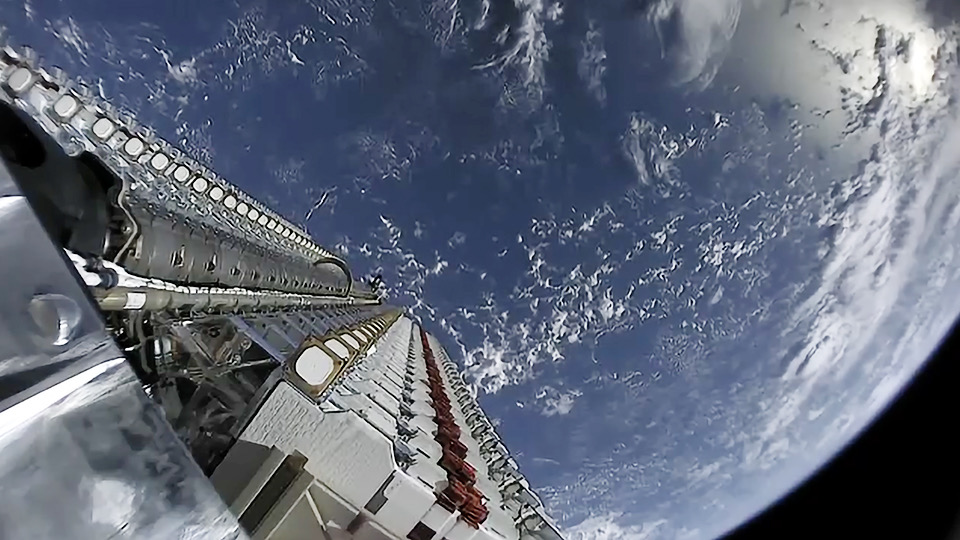SpaceX's Starlink internet satellites to connect with Google Cloud systems

SpaceX plans to build out its Starlink internet satellite constellation with the help of Google Cloud.
The two tech giants announced the collaboration Thursday (May 13) to provide data, cloud services and applications for enterprise Starlink customers at locations around the world, starting later in 2021. The value of the deal was not disclosed.
Major implications for the growing constellation of 1,500 orbiting Starlinks include SpaceX building ground stations in the same locations as Google data centers, and connecting Starlink satellites to existing Google Cloud infrastructure. SpaceX will install the first Starlink terminal at Google's New Albany, Ohio data center, a spokesperson told The Verge.
"Combining Starlink's high-speed, low-latency broadband with Google's infrastructure and capabilities provides global organizations with the secure and fast connection that modern organizations expect,” Gwynne Shotwell, SpaceX president and chief operating officer, said in the statement.
Related: SpaceX's Starlink satellite megaconstellation launches in photos
Join the Space.com forums here to discuss SpaceX and space travel. Let the community know what you're thinking!
The collaboration also plans to bring in emerging cloud services – such as artificial intelligence and machine learning – to make decisions about what parts of a dataset should be sent to Earth; these computer services could reduce bandwidth needs. SpaceX's target market for customers are those who work in rural areas where Internet speed is often diminished.
Google and SpaceX inked another major deal in 2015, when Google said it would spend $900 million on SpaceX "to support continued innovation in areas of space transport, reusability and satellite manufacturing," according to SpaceNews. For perspective, this was four years before the first Starlink launched in 2019, and before SpaceX had self-landing Falcon 9 rockets working in a bid to reduce launch costs.
Breaking space news, the latest updates on rocket launches, skywatching events and more!
One of Google's major competitors, Microsoft, also announced a deal with SpaceX and SES in October 2020 for cloud services. At the time, the companies said the pact would support Microsoft's Azure Space cloud business that operates from mobile data centers that can be deployed anywhere around the world.
Cloud partnerships are by no means unusual in the space business, as companies seek to drive down the cost of delivering information to more and more remote areas. Amazon Web Services and Iridium Communications, for example, have a collaboration focused on the Internet of Things for connecting devices or objects (like shipping containers) to broadband services for tracking or communications.
While Starlink has an aim of providing broadband in traditionally underserved areas, astronomers are raising alarms about megaconstellations like it. The worry is the bright satellites could cause problems for scientific observations requiring wide-field surveys, such as hunting for potentially hazardous asteroids. SpaceX is experimenting with methods to reduce the brightness of individual Starlinks.
Follow Elizabeth Howell on Twitter @howellspace. Follow us on Twitter @Spacedotcom and on Facebook.

Elizabeth Howell (she/her), Ph.D., was a staff writer in the spaceflight channel between 2022 and 2024 specializing in Canadian space news. She was contributing writer for Space.com for 10 years from 2012 to 2024. Elizabeth's reporting includes multiple exclusives with the White House, leading world coverage about a lost-and-found space tomato on the International Space Station, witnessing five human spaceflight launches on two continents, flying parabolic, working inside a spacesuit, and participating in a simulated Mars mission. Her latest book, "Why Am I Taller?" (ECW Press, 2022) is co-written with astronaut Dave Williams.
